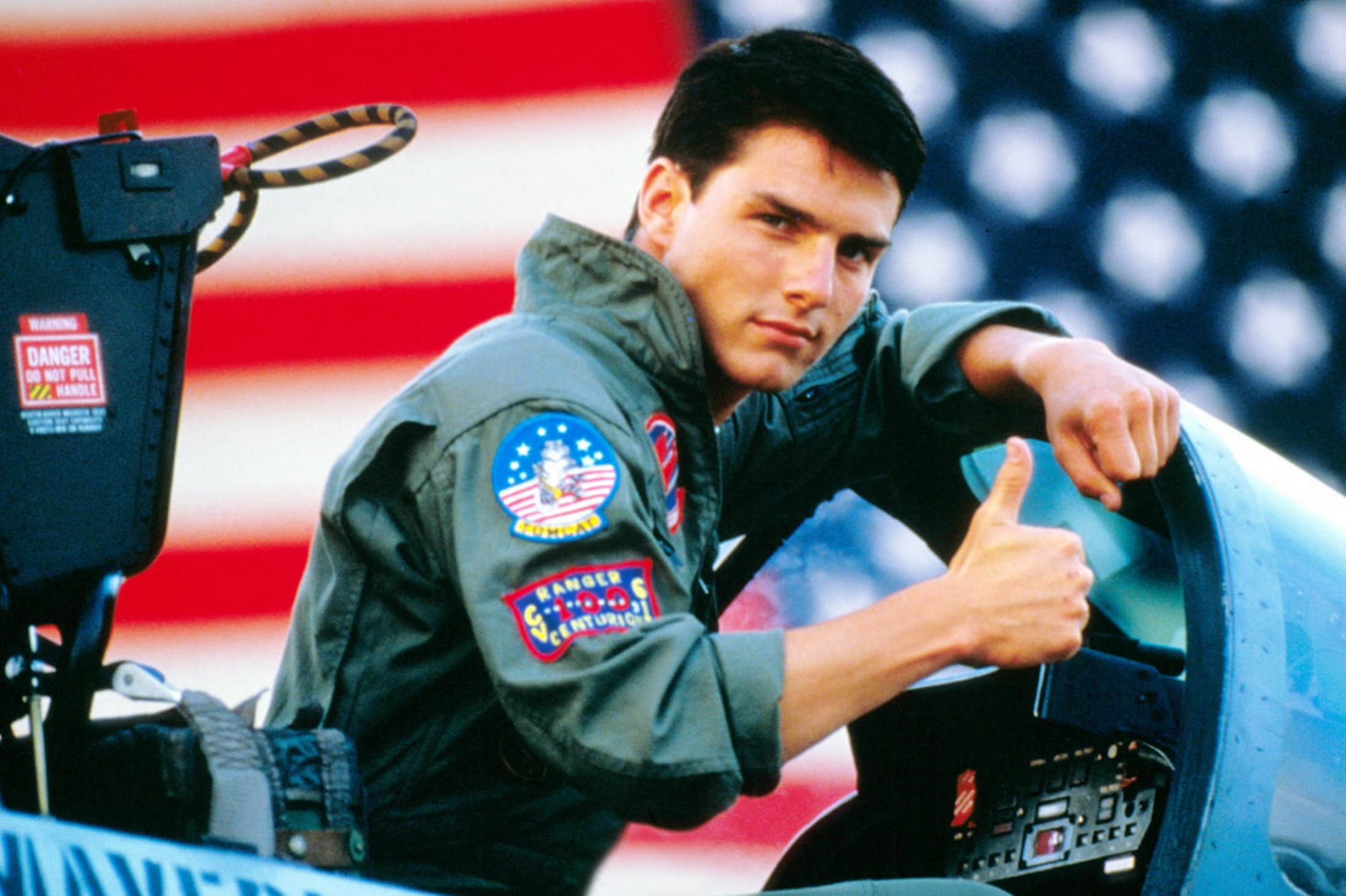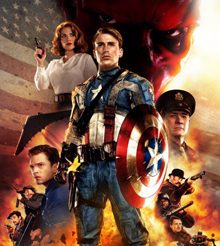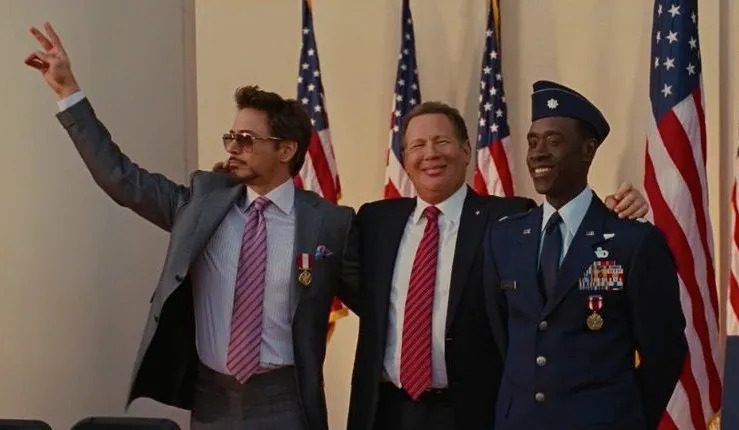

For as long as cinema has existed, directors have had personal biases and agendas with which they approach certain stories. Whether these stories are a means of documenting and celebrating history or reaching to represent specific audiences, every film comes locked and loaded with an underlying message. Social issues are reflected in popular culture in the same way that popular culture drives conversations and brings attention to social issues. To dive deep into any society, look first at their popular media and how they represent themselves. What practices are highlighted the most? For example, if you watch a Korean drama, the family unit is one of the biggest driving forces in many cases. Much of the plot can be driven by parental approval of a love interest or even instigated by long-standing familial vendettas. This reflects Confucian ideology in the same way American films often highlight individualism and showing up as the underdog despite all odds. Working your way up the food chain and proving yourself are often considered American values and pieces of American culture. While these values reflect the society they are based in and allow a piece of media to appeal to a target audience, they can also be used to push particular agendas, such as patriotism, by creating characters or narratives that embody all that it means to belong to a certain group or nation. Film is one of the most prominent places in pop culture to push particular agendas, as can be seen through the use of film as a propaganda tool or as a form of protest.


Perhaps one of the most obvious means of retelling history and swaying public opinion is through war films. War stories have been told and retold through film as far back as cinema has been accessible to the public, but it particularly took off as a genre in the mid to late twentieth century when films around World War II were all the rage. Well-made, high-budget films like Saving Private Ryan and Pearl Harbor, as well as TV shows like Band of Brothers, remain popular today and are often household classics. Entertaining movies like Top Gun and Captain America: The First Avenger can get any audience pumping their fists and cheering with each successful hit, while more intense movies like American Sniper and Dunkirk bring back more of the humanity and individual livelihoods that are affected by war. A commonality that many of these films highlight is the unity and pride that each soldier possesses, standing shoulder to shoulder with their comrades, ready to fight for their country come hell or high waters. Enemies be damned for even attempting to challenge our heroes!
A major movie production industry that has brought war films, or just politically charged films, into the mainstream is the Marvel Universe. As one of the most successful movie franchises of all time, you will be hard-pressed to find someone, in or out of the United States, who has never seen at least one Marvel Universe film or heard of a few of the characters. The role of ‘Earth’s mightiest warriors’ that the Avengers attempt to fill, plus the fact that the S.H.E.I.L.D. initiative is a part of the US government and the Avengers headquarters is based in the States, are all very well staged to push a particular pro-military, pro-America sentiment in these films. In particular, Captain America, Iron Man, and to some extent Spider-Man all play the role of the American hero, pushing specific militaristic and patriotic notions in each of their separate movies. 

Captain America is perhaps the most obvious of the three in his patriotism. With a name like ‘Captain America’, it would be difficult to argue any other way. When the Captain America character was first created in 1940 by Joe Simon and Jack Kirby, he was used mainly as a source to promote anti-Naziism during World War II. Throughout the Captain America comics’ run, the creators often used episodes to critique particular governmental policies or military actions and inactions, making political commentary a major theme in the Captain America comics.
In the Marvel Cinematic Universe, Captain America, played by Chris Evans, has three solo films; Captain America: The First Avenger, Captain America: Winter Soldier, and Captain America: Civil War, and is featured in multiple other Avenger group films. Cap is a justice-focused, level-headed leader who embodies many core American values: individualism, equality, self-government, liberty, and justice. Cap never runs away from a challenge and is constantly looking out for the little guy. Even his rejection of the government interfering with the Avengers that kicks off his third movie, Civil War, shows his commitment to the people he serves and his unwillingness to have anyone controlling his actions, a value lumped in with his individuality and desire for self-determination. 

Besides his justice-seeking personality and leadership skills, the Captain America films all hold a particular political agenda. While it’s evident in his first film that, in the Marvel Universe, Steve Rogers, or Captain America, is meant to be a propaganda actor during WWII, traveling the country to muster support for the army, the themes in all three of his films push a similar patriotic agenda. From Cap’s enthusiasm for the military and the good it can do for everyone to the vilification of foreign countries including Germany and Russia, these films also push a pro-America, patriotic agenda. It is no accident that American flags can be seen hung in the background of many significant scenes and red white and blue are splashed across Captain America’s uniform to remind the audience what team he will always be fighting for.
In comparison to Captain America, the Iron Man franchise is slightly less obvious in its political persuasion. While Tony Stark, played by Robert Downey Jr., is far from the righteous, justice-seeking Steve Rogers, he still embodies many qualities that define American culture. He is an arrogant genius who does and says what he wants, much to the dismay of many around him. Tony is precisely the archetype that has been incredibly successful in many other fist-pumping exciting military films like Top Gun as the brazen, high-flying, fearless male lead. While no one wants to meet a Tony Stark in the real world, his character is obnoxious in just the right way to make the audience root for him and relate to his ambition.


Initially, it seems like the Iron Man movies, particularly the first installment, can be taken as anti-military. While Tony gets rid of his weapons production business, his main consumer being the US military, he never once distances himself from the armed forces or the country. Rather, he wants to work with the US to find another way to save innocent lives, thus creating the Iron Man suit and eventually working with S.H.E.I.L.D., a government agency. Similar to Captain America, an American flag is often not too far away during important scenes, appearing in the background to remind the audience who the real winner will always be.
A commonality between the Captain America and Iron Man movies is the international nature of the antagonists. Being such mainstream movies, the agendas that are pushed through under the radar have the potential to be incredibly influential to the general public. As such, even details so small as the accents of the ‘bad guys’ can condition audience members to subconsciously see people who speak in that way to be enemies. In particular, the antagonists in Captain America were mostly Russian, German, and members of other Eastern European countries, while Iron Man faced people from the Middle East. In real-world politics, it is no secret that the War on Terror has been a major part of American foreign policy for the past twenty-two years and since the mid-twentieth century, Russia and the US have not been able to play nice either. Not to say that Iron Man and Captain America single-handedly radicalized the American people against Middle Eastern and Russian people, but making the enemies in such patriotic, American-military-based films come from these places has the potential to play a major role in making audience members subconsciously attribute these accents and even these landscapes, such as Tony’s kidnapping scenes, with hostility.


While Iron Man and Captain America boast pro-American, pro-military agendas, many other Marvel characters, like Captain Marvel, have more of a subtle take on patriotism. These films are less in your face with their persuasion and might be more difficult to recognize. An example can be found in the most recent live-action Spider-Man movies starring Tom Holland. Being brought into the Avengers by Tony Stark, Peter Parker is just a kid from Queens with a rough upbringing who struggles economically but was given a chance to make a difference.


Regardless of the genre, budget size, or target audience, every film has some kind of agenda or ideology that it is pushing. Particularly, popular big-budget films like those in the Marvel Universe have the potential to influence people on a massive scale. The patriotic narrative that is present in films like Iron Man, Captain America, and Spider-Man can be seen through their use of the American flag in significant scenes and the general embodiment of idealized American values. Taking many of their battles overseas and fighting with people from nations that the US has historically clashed with also highlights how these movies can be used as a tool to sway public opinion and condition audience members to associate certain accents with antagonistic characters. Not to say these are bad movies or that they should be avoided, but recognizing what kinds of biases we pick up from the media we consume is important in developing a critical eye and progressing as a society.

